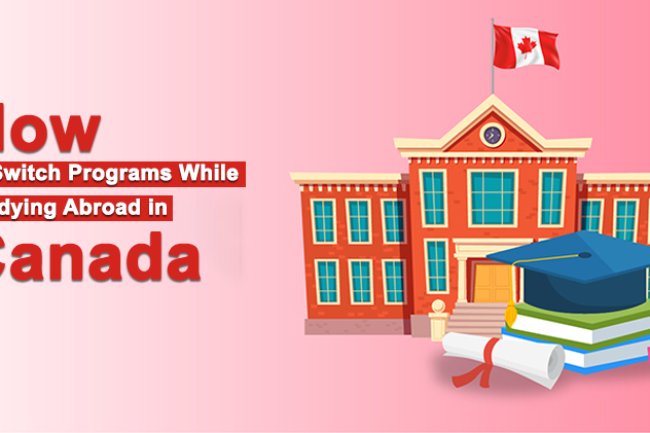Are Short-Term Study Abroad Programs Right for You?
Examine the advantages of study abroad programs that are brief. Check out this extensive guide to see whether they match your learning objectives and aims for personal development.

The number of short-term study abroad programs has increased in recent years. These courses, which usually run a few weeks to a few months, provide a focused but intense foreign education. So are you a good fit for a short-term study abroad program? Let's study the advantages, difficulties, and important factors to aid in your decision.
The Appeal of Short-Term Study Abroad Programs
1. Accessibility and Flexibility
The accessibility of short-term study abroad programs is one of their main benefits. Short-term choices, in contrast to regular semester or year-long programs, are made to accommodate a variety of schedules. They are perfect for students with busy schedules or other obligations because they frequently happen during summer or winter breaks.
2. Cost-Effective
Longer stays abroad tend to be more expensive than short-term programs. The shortened duration results in cheaper living, housing, and tuition costs. They are also more affordable because a lot of universities provide financial aid and scholarships especially for short-term study abroad opportunities.
3. Taste of International Experience
Short-term programs offer a great chance for students who aren't sure they want to commit to a long-term study abroad experience to get a taste of a new academic environment and culture without having to invest a lot of time. Students can use this "taste test" to determine whether they would like to go abroad for longer trips in the future.
Benefits of Short-Term Study Abroad Programs
1. Cultural Exposure
Within a little period, kids might acquire noteworthy cultural understanding. Gaining a profound comprehension of the host culture can be facilitated by engaging in customs, sampling regional cuisine, and mingling with the populace. Cultural excursions and activities that optimize exposure and learning are frequently incorporated into intensive programs.
2. Academic and Professional Development
Short-term courses are frequently intense and focused, offering specific professional or academic experiences. These programs, which could include research projects, internships, or specialty courses, can improve your CV and present distinctive learning possibilities that might not be offered at your home university.
3. Networking Opportunities
Even for a short time, studying abroad enables you to expand your global network. You'll get to know academics with global experience, experts in your sector, and peers from all over the world. These relationships may prove to be priceless for upcoming educational and professional prospects.
Challenges to Consider
1. Limited Immersion
The limited time for immersion is undoubtedly the most significant disadvantage of short-term study abroad programs. It might be difficult to fully comprehend a new culture, acquire language skills, and develop close relationships with people in a short amount of time. You can feel as though the encounter is hurried and lose out on the subtleties of daily living in the host nation.
2. Intensity
Short-term courses can be very demanding. There is frequently little downtime due to the hectic schedule of classes, outings, and events. This makes the most of the experience, but it can also be draining. It can be difficult to strike a balance between your need to explore and your academic obligations.
3. Adjustment Period
It takes time to get used to new surroundings. The training may be coming to an end by the time you feel at ease. A large amount of your brief visit may be devoted to the early phase of culture shock and adjustment, which could limit your total enjoyment.
Is a Short-Term Study Abroad Program Right for You?
1. Your Goals
Think about the goals you have for your study abroad experience. A short-term program can be the best option if your objective is to have a quick but enriching cultural and academic experience. A longer stay, meanwhile, can be more advantageous if you're looking for advanced language proficiency or profound cultural immersion.
2. Your Schedule and Commitments
Evaluate your availability and responsibilities at the moment. If you are unable to take a semester or year off for personal, business, or academic reasons, short-term programs are a great option. They enable you to travel abroad and gain experience without seriously interfering with your timetable.
3. Your Budget
It is important to take finances into account. Studying abroad can be more reasonably priced with short-term programs, but it's still vital to consider the whole picture, which includes program fees, travel expenses, and daily living costs. To assist with cost-sharing, look into the financial aid and scholarships that are offered.
4. Your Adaptability
Consider your resilience and flexibility. Short-term projects necessitate adaptability and a high level of speed tolerance. If you're able to manage demanding schedules and appreciate diverse experiences, a short-term program could be beneficial for you.
Study abroad programs that last a few months provide an exceptional and affordable means of traveling the world while gaining vital networking opportunities, academic enrichment, and cultural awareness. They do, however, provide certain difficulties, like rigorous schedules and little immersion.
The choice to take part in a short-term study abroad program ultimately comes down to your own objectives, financial situation, and level of flexibility. You can decide if a short-term study abroad program is ideal for you by carefully weighing these aspects. Studying abroad may be a life-changing experience that broadens your horizons and improves your personal and professional progress, regardless of whether you opt for a shorter program or a longer stay.
What's Your Reaction?





















